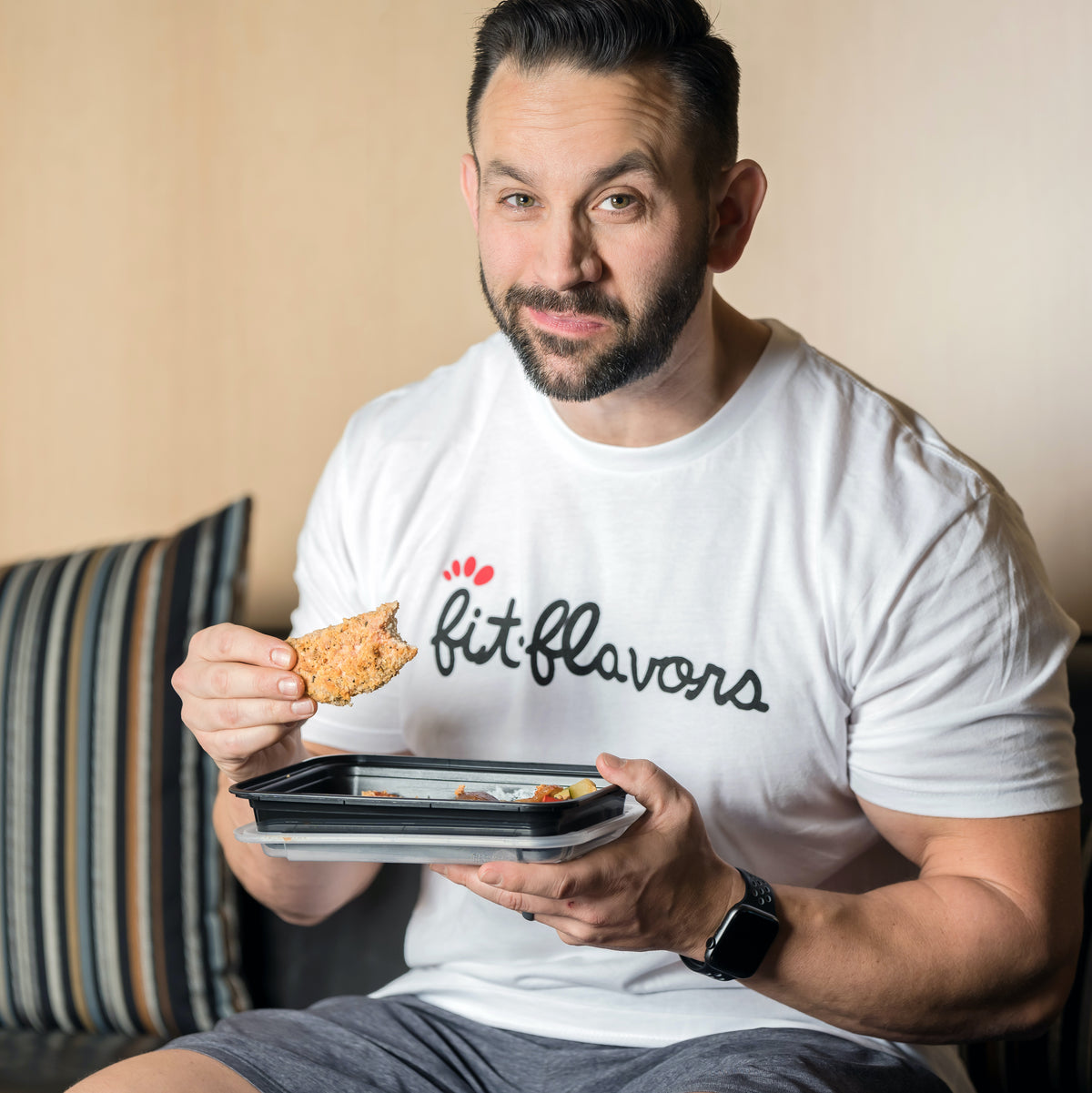How many times have you woken up on a Monday with intentions of starting your healthy eating or “diet” today, only to shrug and tell yourself “next Monday?” Next Monday becomes next Monday which becomes next Monday and well...you know the rest. You’re not alone, but what’s the hold up?
Changing your eating habits can often feel like an ongoing, impossible task. This is hugely related to most people simply not knowing where to start or what “healthy eating” even means. So if you find yourself lost and needing some guidance and motivation to get started, stay tuned, we got you!

What is healthy eating?
Healthy eating means eating a variety and balance of high quality foods that give your body the nutrients it needs to maintain your health and have energy to carry out daily life. These macronutrients include lean proteins, complex and low glycemic index carbohydrates, and heart healthy fats. A balance of high quality, real foods will also help you consume the micronutrients necessary for development, disease prevention and overall well being.
Protein is found in meat, poultry, seafood, beans, peas, eggs, soy, nuts and seeds. Protein is an important building block of bones, muscles, cartilage, skin, and blood. Your body also uses protein to build and repair tissues.
Carbohydrates are the body’s most important source of energy. Energy is important for your daily activities from walking and running to digesting food and just keeping your body functioning. Complex, low glycemic carbohydrates include fruits, vegetables, whole grains and legumes.
Fats are essential for cell growth and energy. They help protect your organs and help your body absorb certain vitamins. Dietary fat is found in oils, coconut, nuts, milk, cheese, meat, poultry, and fish.
Basic nutrition knowledge can seem overwhelming, but it’s actually quite simple and necessary to get started with healthy eating.
The link between healthy eating and healthy weight, reduced risk of disease, and overall health is too important to ignore. Psssst! There’s your motivation! Getting started and taking steps to eat healthy will have you on your way to getting the nutrients your body needs to stay healthy, active, and strong.
Let’s Get Started
Set Goals
First thing’s first...why do you want to eat healthy? Defining your goals is the first and possibly one of the most important steps to take when getting started with eating healthy. Whether you want to be free from medication, lose weight, get better sleep, have more energy, or simply just want to feel comfortable in your own skin, having a goal is what’s going to keep you consistent and give your journey purpose. Without goals you lack focus and direction, which can cause you to wake up and tell yourself “next Monday.”
When setting goals for yourself, make sure that they are important to you and that there is value in achieving them. If you have little interest in the outcome, then the chances of you putting in the work and sticking with it are slim. If this feels overwhelming - start small. These goals can be as simple as: Remembering to eat breakfast or keeping a journal of what you eat for one week. These baby steps yield lifelong results.
Write your goals down! Writing your goals down makes them real, tangible and increases the chance of you reaching them. This gives you no excuse to forget about them and will serve to remind you why you got started when you start to lack the motivation to keep going.
Start Keeping a Food Diary
A food diary is a log of what you consume each day. Tracking your food intake will help to give you insight into different aspects of your eating habits that may need a change. The more specific and accurate you are with your reporting, the more accurate your information will be. You may begin to see that you have been eating too many calories, too little calories, or even missing an entire food group (i.e fruits, vegetables).
There are different tools and apps designed to help make tracking your food easy, such as MyFitnessPal. Or keep it simple and go the old school route, good old pencil and paper! Do what works for you, just make sure you write everything down. Don’t forget to track all of the little extras as well: cream and sugar for your coffee, condiments, candies, drinks, etc.
Determine Your Caloric Needs
While the recommended daily calorie intake in the US is around 2,500 for men and 2,000 for women, everyone’s calorie intake will be different. Your body needs calories, and a caloric intake that is too low or too high can eventually lead to health problems.
You have to take into account your age, weight, height, overall health, physical activity, and your own personal goals. Are you trying to lose weight? Gain weight? Maintain weight? Taking into account all of these factors will give you a caloric intake just for you and will aid in eating healthier.
Our online calorie counter can make finding your caloric needs easy. Or schedule an appointment with a licensed and registered dietitian and they can calculate your caloric needs for you.
Plan Your Meals Ahead
Planning your meals ahead of time can change the way you eat and also change your food buying habits. A busy schedule plays a huge role in unhealthy eating habits and often makes it hard to start and stay consistent with healthy eating. Meal prepping is a great tool to help kick start your healthy eating, and not to mention a temptation remover.
Has hunger ever crept up on you and you have nothing on hand to eat? Of course, it happens to the best of us. This is usually when a drive through or something fast seems like the best option. Not being prepared and making decisions about food last minute often leads to unhealthy decisions. Having healthy meals already prepared for the week comes in handy for times like this.
Many people see success consuming 3 balanced meals and 2-3 snacks each day. Does this sound like an average day for you? If not and you find yourself skipping meals and undereating, or maybe even overeating, meal planning may be the key to getting started with healthy eating for you. Planning your meals ensures you always have options that fit your dietary needs because you’ve planned in advance and can avoid rash decisions about your next meal.
Prepping your meals for the week can take several hours if you do it yourself, or you can completely take the time and prep out of meal planning and buy your meals already prepared at fit-flavors.
Enjoy Your Food
Switching your current eating habits to healthier ones can bring on feelings of frustration, anxiety, stress, and even anger. Negative feelings associated with eating healthy can affect your relationship with food, and in return will make eating healthy even harder.
Sit back, relax, and enjoy! Eat for nutrition as well as pleasure. Experiment and find foods that you like because if you don’t like the food that you are eating, you’re not likely to make this healthy change a permanent one. It’s important to enjoy your food because true pleasure leads to healthy choices and makes you more likely to stick with your healthy eating long term.
Reflect On Your Progress
Healthy eating is a journey, and with any journey it’s always important to reflect on your progress. Taking time to reflect brings awareness to the things you are doing right and the things you may need some extra help with.
Congratulate yourself as you start to see progress and use it as motivation to keep going.
Or if you find yourself still not knowing where to start and still need guidance, consider reaching out to a dietitian. There are few things better than a positive push, and there’s nothing wrong with getting some extra help.
Hopefully now you’re feeling more confident about getting started with your healthy eating. Knowledge and preparation go hand in hand with healthy eating and will make getting started so much easier. Instead of waiting until next Monday, let’s start now! Remember these tips and you’re on the road to healthy eating.







